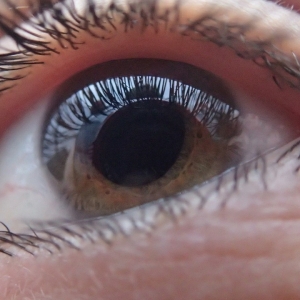Our bodies are constantly changing as we age. We physically start losing strength and muscle mass; our eyes suffer the same decline in health and performance.
The changes to the performance of eyes as you age is normal. Some common ailments are presbyopia, cataracts, glaucoma, macular degeneration, and diabetic retinopathy. You can correct some of these with prescription glasses, contact lenses or surgery. However, macular degeneration is not curable but it can be treated for some with injections that need to be repeated over 1-2 years
At what age does vision change?
At the age of 40, you may start to notice that it is harder to focus on things or text up close. The inability to focus on objects close up is due to presbyopia. The difficulty in focusing is caused due to the hardening of the lens and is perfectly normal; it does not mean the start of a degenerative disease.
Presbyopia can be addressed with reading glasses, contact lenses or holding books and newspapers far away from you. There are some surgery options available to correct the problem such as monovision LASIK, refractive lens exchange, and corneal inlays.
Cataracts are still considered an age-related eye disease, but it has become so common that it is considered a normal aging eye ailment. From the age of 60, you may experience symptoms of cataracts and the risk increases when you reach 70.
Luckily cataracts can be removed with surgery. The surgical procedure is safe and effective. Should you suspect you suffer from cataracts, consult an optometrist as soon as possible to effectively and quickly address any problems.
Major eye diseases related to aging
Glaucoma
Every decade after you reach 40, your risk of getting glaucoma increases.
Macular degeneration
AMD, macular degeneration or age-related macular degeneration is one of the leading causes of blindness among the aged.
Diabetic retinopathy
People that have diabetes and are over the age of 40 have a high risk of developing diabetic retinopathy. Diabetic retinopathy could lead to blindness.
How does aging affect vision
There are other small changes to the eye as we age that affect our vision. Some of these changes are:
Reduced pupil size: the muscles that control our pupil will lose strength. The loss in strength results in the pupils decreasing in size and is not as responsive to light.
Dry eyes: we make fewer tears as we age and more so for women after menopause. Dry eyes are usually experienced as a stinging sensation, and you usually need to apply eye drops throughout the day to lessen the symptoms.
Other eye problems related to aging include a decrease in color vision, loss of peripheral vision, and vitreous detachment. You can reduce the risk of developing some of these ailments by following a healthy balanced diet, following good eye care tips and reducing strain on your eyes. Should you suspect that you may have symptoms for any of the problems mentioned above, consult your optometrist as soon as possible so that, the problems can be addressed quickly and effectively.
If you are concerned that you vision is worsening, schedule an appointment with an optometrist in Centralia at Innovations in EyeCare now.

